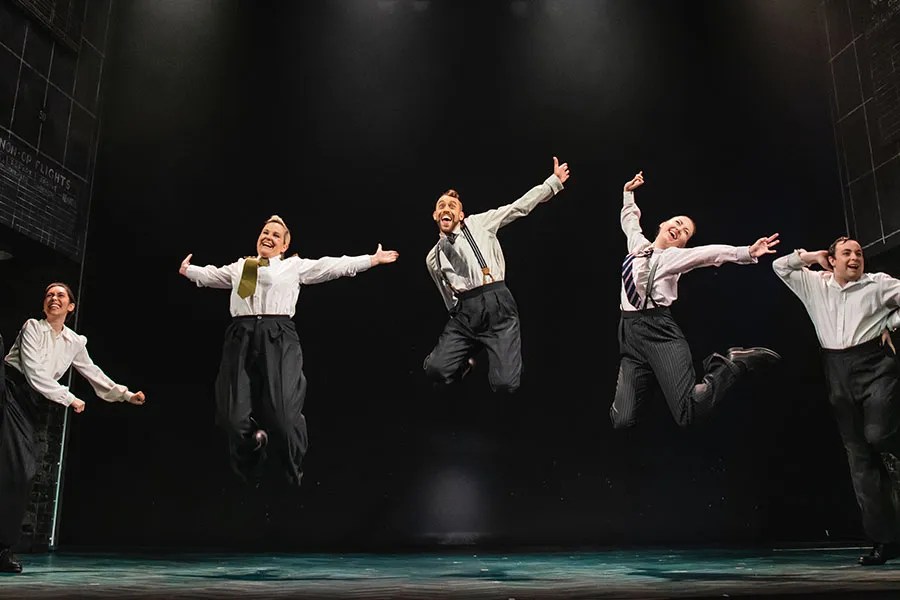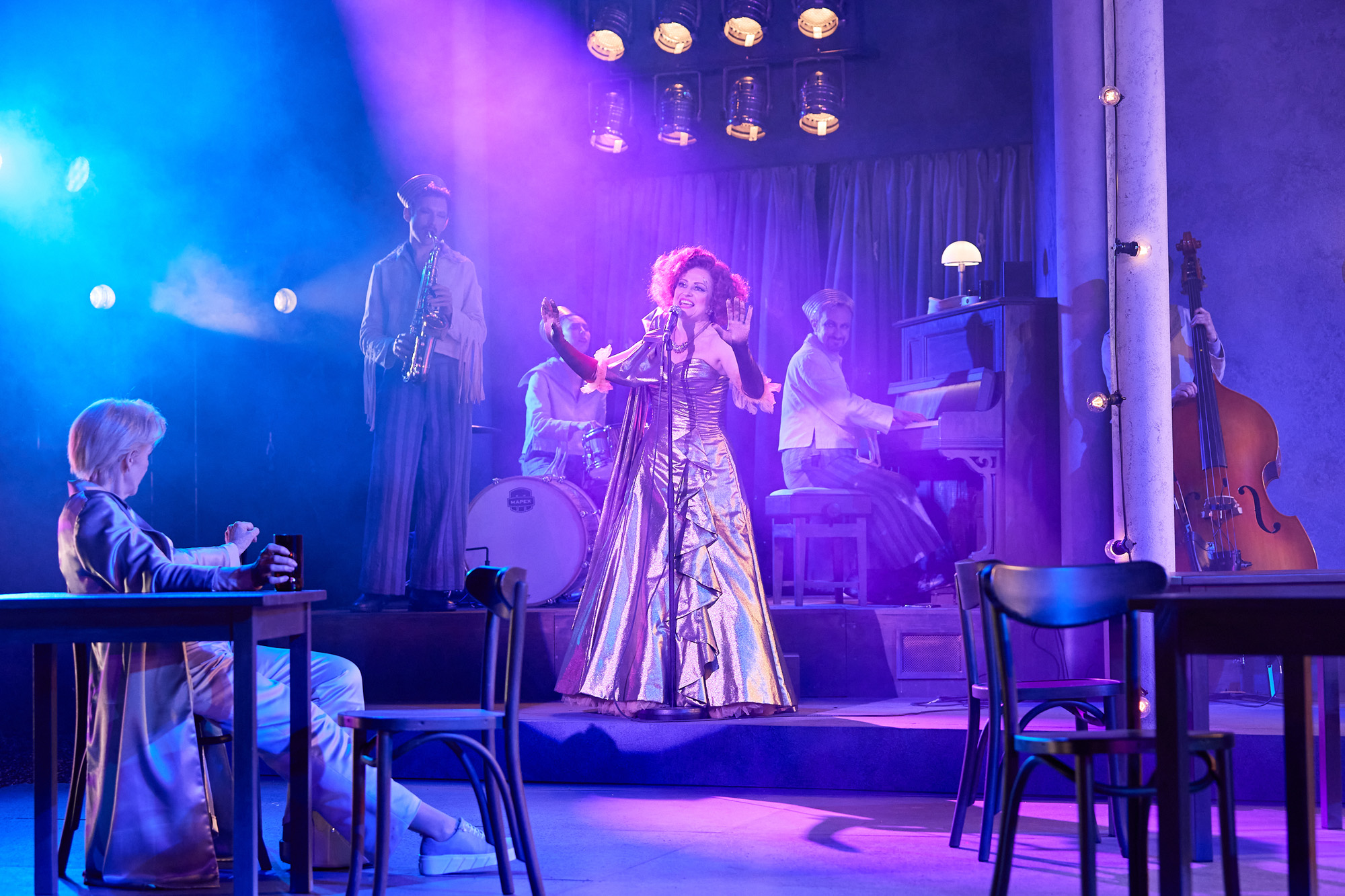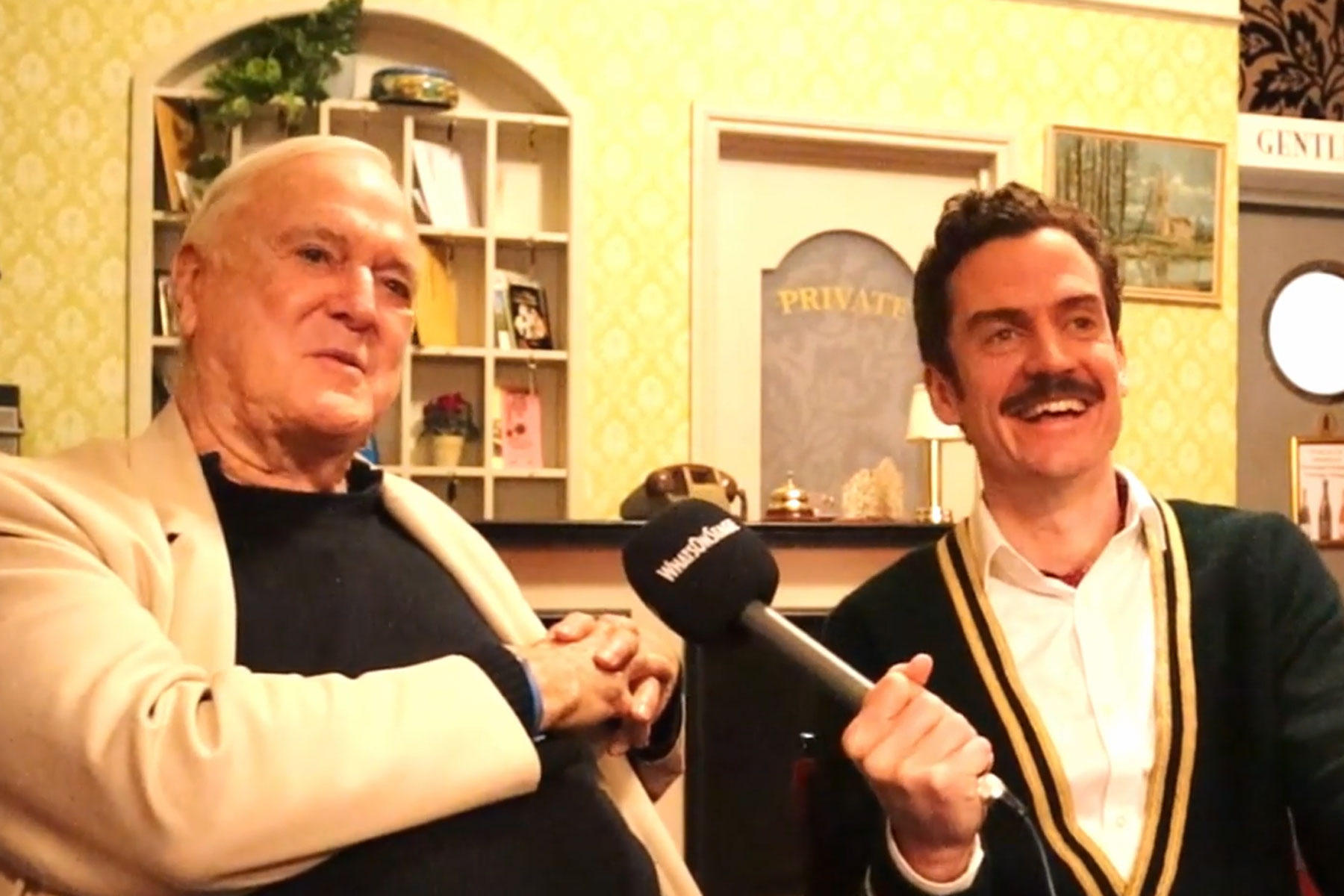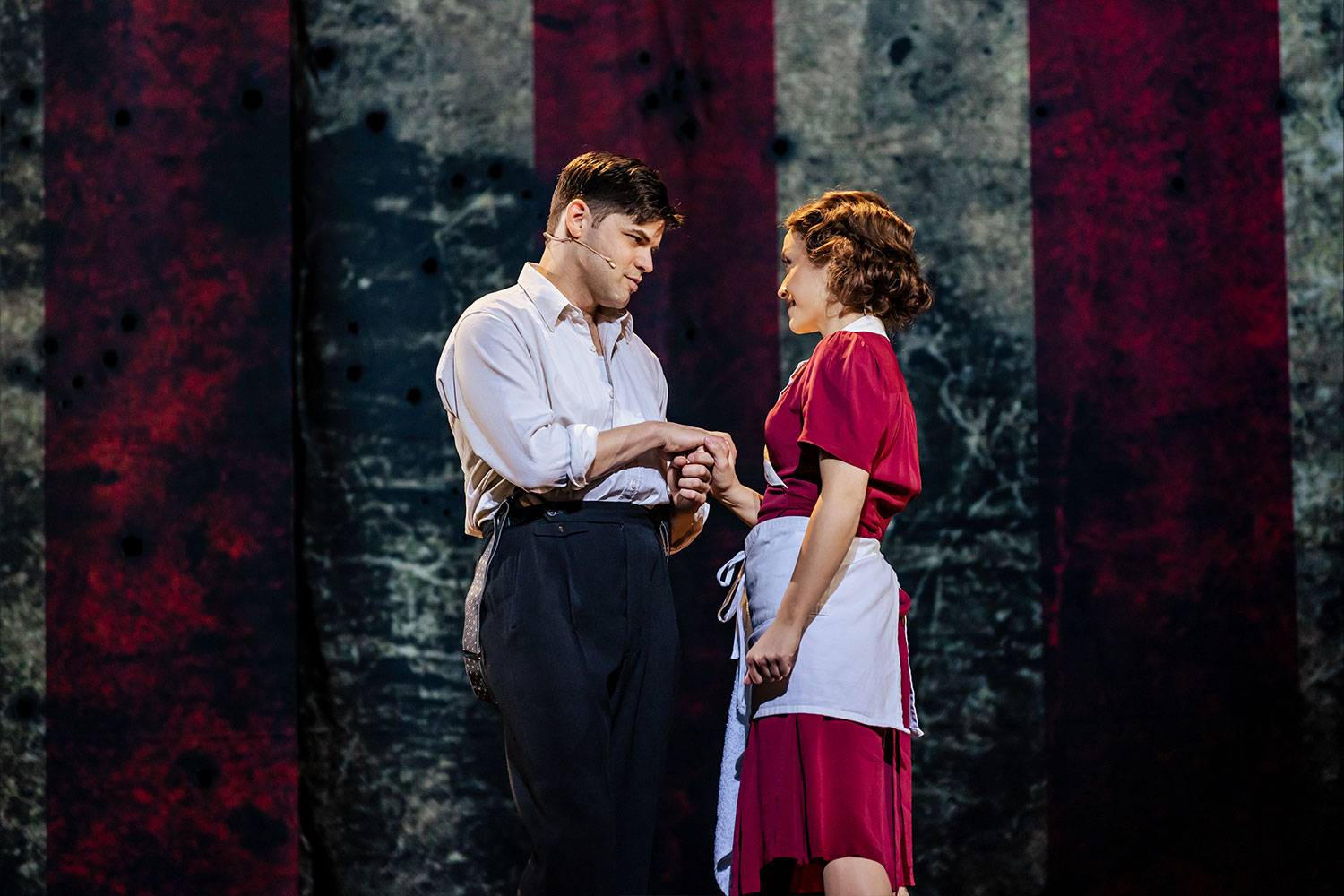Long & the Short & the Tall (Sheffield)
Sheffield Theatres’ staging of Willis Hall’s The Long and the Short and the Tall can be seen as continuing a series of revivals of plays questioning war and empire, following, most recently, Howard Brenton’s The Romans in Britain, a decidedly more powerful, if less disciplined, play.
Nearly 50 years on the relevance of Hall’s depiction of the moral dilemmas of war (especially in the treatment of prisoners) is undimmed, but in dramatic terms the play feels dated. It’s not the only one of the Royal Court triumphs of the time to operate on surprisingly traditional lines, not least in its hefty reliance on stereotypes.
The British patrol holed up in the Malayan jungle consists of predictable patterns of characters: a Scot and a Welshman in addition to representatives of assorted English regions; the coward, the sadistic NCO and the subversive joker who emerges as the voice of conscience. They spend time falling out with each other before the capture of a Japanese soldier brings a moral focus to the situation – is he to be treated as a human being? The patrol plans to rest a while before returning to camp, but the Japanese breakthrough turns the mission into a desperate attempt at survival.
Hall’s consideration of the issues is admirably even-handed, the protagonists in the debate shifting naturally in the flow of dialogue. Private Bamforth, for all his moral authority, is given the less-than-PC insight that the Japanese is “almost human”. Corporal Johnstone, the only character without a redeeming feature, wins his share of the arguments (on matters of fact, at least). The play also has plenty of the traditional virtues of the “well-made play”: the well-judged use of humour leavens, rather than dilutes, the drama, and Act 2 builds tension effectively through contrasts of violent action and stillness.
Josie Rourke’s straightforward production is happy to let the play speak for itself, with Jason Merrells’ Sergeant Mitchem leading a balanced ensemble of eight with understated authority. As Bamforth, Tom Brooke, rather too much of a Max Miller figure in the early stages, develops into a convincingly flawed spokesman for decency. Lucy Osborne’s naturalistic set, with its steaming jungle background, adds to the sense of authenticity.
I am not sure that 1959’s Best Play of the Year seems quite as major an achievement in 2006, but this sympathetic revival is a welcome reminder of the talent of its author, who died last year.
– Ron Simpson










